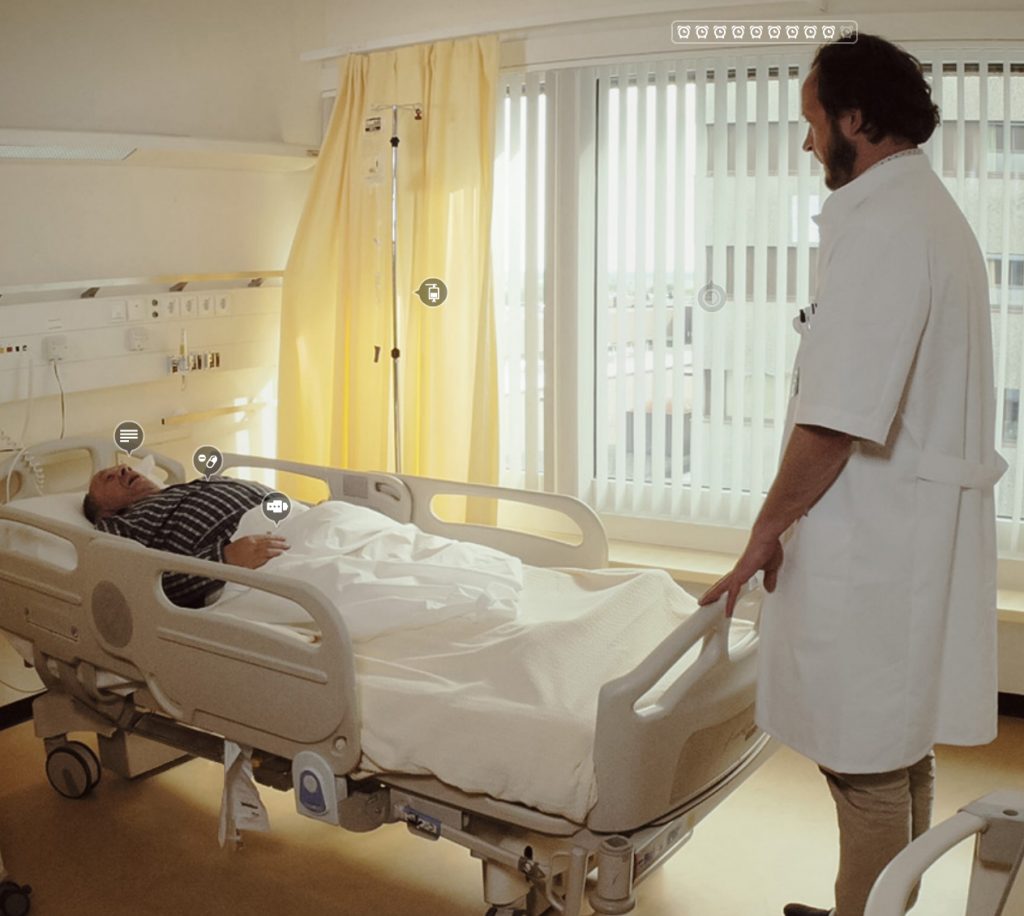8 November 2018
We at IJsfontein already knew this: Serious Games can be extremely effective in learning skills. They offer more room for curiosity, experimentation, failure but also success. However, it still makes us happy, and proud, when a scientific study proves the effectiveness of our games.
The study of our ‘Delirium Experience’ has been published in JMIR Serious Games, a scientific publication for gaming and gamification in the care sector.
Delirium
In Holland 100,000 patients per year will suffer a delirium, for example after an operation or an infection. Because of the lack of awareness and understanding, many patients will be diagnosed and treated inadequately. Education is often focused on gathering knowledge, but this is not enough. Medical students need to be able to transfer this knowledge into actual skills.
Our game proves to be highly effective in doing just that, as well as having a positive effect on motivation and engagement of students caring for vulnerable elderly people.
Effectiveness Study
156 participating students were divided into three groups. The control group watched a video about ‘How to grow old healthily’. The second group watched a video explaining delirium, including a story from an expert. The third group played the Delirium Experience. All three groups had the same amount of time.
The group watching the delirium video and the group playing the game reported the same knowledge. More so than the control group watching the ‘How to grow old healthily’ video. But, this is where it gets interesting: the students who have played the game, show a better ability to come up with care interventions for cases submitted during the study than any of the other groups. In fact, on a scale of one to nine, the players of the Delirium Experience scored 5 points higher than the Delirium video group.
“We didn’t only research the effect of the game in medical students, but also in nursing students and care professionals. The game is particularly suited for interdisciplinary learning and working as a team,” states Professor Dr. Sophia de Rooij, head of the University Centre for Geriatrics at UMCG.
What does this mean for the future?
“We hope that these results will ensure that there will be more games for education in the care sector in the future”, says Evert Hoogendoorn. “It is a great result, but we’ve got a long way to go still. We would like to roll out Delirium Experience internationally. We would also like to use this concept to facilitate education about other medical conditions.”
About the Delirium Experience:
During the game students and care providers learn how to recognise and treat a delirious patient, from two perspectives. Through the eyes of a delirious patient you see how frightening a delirium can be, and what impact the choices made by a care provider can have on the development of a delirium. Next you can discover what the best interventions are, from a care provider’s perspective. The game does not only give you feedback regarding the choices made, but also which order of treatment is important.
“Delirium Experience is not about how to learn a certain fixed protocol, but about learning to recognise and apply certain interventions that can bring a patient back to reality. Students and care providers learn to improvise as every situation is different”, says Kiki Buijs-Spanjers, graduate student at the UMCG.
The game is available through a licence. You can find more information and a taster of the game on www.deliriumexperience.nl. The game has been developed by IJsfontein, Serious Games-expert, as an initiative of Stichting Effectieve Ouderenzorg. Nuts-Ohra is one of the financial contributors.
This study has been published by JSG-JMIR Serious Games. You can read it here: https://games.jmir.org/2018/4/e17

